Highlights from Day 1 of the Digital Health and Wellness Summit 2019
Artificial Intelligence is seen as being both the future of healthcare and the solution to the challenges facing health systems around the world. But can we really make it happen, and how long is it going to take? That was the question posed today as #DHWS19 kicked off in Barcelona with multiple delegates hearing from experts in the fields of Ethical AI, Data Governance, Blockchain and Electronic Health Records .

Let’s shape the future together
AI is radically changing physical and mental health interventions says Tarek R. Besold, AI Lead & Senior Research Scientist at Alpha Health -Telefónica Innovation Alpha. To make AI and the new technologies work, Tarek believes “The agenda… has to be driven by the patient.”
Ain Aaviksoo, Chief Medical Officer Guardtime Health (Estonia) told us that “Blockchain won’t solve all the problems in health.” If that doesn’t, then what will?
With data being one of the key drivers for innovation, our audience heard from a diverse set of speakers on achieving personalised care in diabetes, delivering higher quality care at lower costs, value based care and the impact of emerging technologies.
Stephen Ranjan, Vice President, New Product Development at Roche Diabetes Care reinforced the message that patients have to be placed at the centre of care, whilst Marco Franzosi ,Strategy Officer at Novartis Foundation (Switzerland) told us that urban health is a global challenge and what we are seeing now are our first skirmishes with non-communicable diseases.”

Towards Smart Cities
With the concept and implementation of smart cities growing across the health sector our afternoon sessions began with discussions on urban health and wellbeing. Maria Fernanda Cabrera, Innovation Director at Life Supporting Technologies, Technical University of Madrid explained how big data can be used for improving health across cities. Currently air pollution deaths cost the global economy $225 billion every year.” We need to change this.
Julien Venne told the audience how the Sharecare movement is engaging and empowering people & communities to meet their healthier self. Sharecare is designing personalised pathways for the users that have meaning based on the local geographic #healthsystem and individual challenges- connecting with the local community.
And when we are talking of empowering people, Hector Upegui of IBM Watson Health made it clear to attendees the importance of putting people at the centre of any use of Artificial Intelligence (AI) in Healthcare. For AI and innovations more generally to work:
“We have to think BIG, but start small. The more people you involve, the larger the solution has to be. Find commonalities to make the solution scalable.”
AI is indeed influencing the development of approaches and delivery of healthcare- Chatbots are more effectively engaging patients and Jordi Serrano Pons, Founder of the UniversalDoctor Project, told us how they are now being used to facilitate integrated care models. However, he did provide a cautionary note.
“AI is at the beginning… and the way we are describing it is confusing some people.” There is a need for development of understanding of digital technologies of patients and patient groups, as well as clinicians and practitioners.
Innovators pitching sessions
So- it’s all moving in the right direction. But enough of the theory. Startups are the people that are creating novel solutions to make healthy lives a reality for all. In a session introduced by Irene Sánchez, Business Creation Manager EIT Health (Spain) and moderated by Mike Short, Chief Scientific Adviser at the Department for International Trade (UK) we had from 5 innovators pitching their ideas to digital health experts.

Get involved
Follow all the action from day two of the summit on #DHWS19.
Further information
Further information is available from Beatriz Sanz, Communications and Events Manager, (beatriz@echalliance.com)

